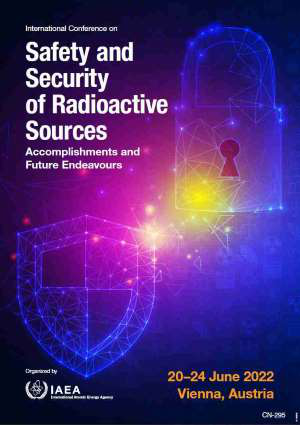Speaker
Description
The use of radioactive material predates the establishment of the Nigerian Nuclear Regulatory Authority (NNRA), hence the concern for orphan radioactive sources in the country. Some of the radioactive sources used in various sectors of the economy became vulnerable due to bankruptcy and other economic realities. During the early days of the NNRA, Nigeria recorded loss of control incidences involving radiological material. For instance, in 2003 two sources belonging to a multinational oil servicing company got missing, sequel to this incidence, the IAEA sent an Emergency Mission to Nigeria in 2003. The recommendations of the Emergency Mission led to the IAEA Integrated Nuclear Security Service (INSServ) Mission to Nigeria in 2004. The primary objective of the Mission was to survey the comprehensive security needs related to nuclear activities in Nigeria and develop a work plan to improve the overall nuclear security in the country with particular emphasis on providing assistance in locating and securing orphan sources throughout Nigeria among others. The recommendations of this Mission led to other Missions to Nigeria such as the IAEA Verified Inventory and Orphan Source Mission which was conducted in August 2007 and one of the objectives of this mission was to discuss any knowledge of possible orphan sources in the country.
Based on the recommendations of these missions, the IAEA and US-DOE provided some training on search and secure and radiation detection equipment to Nigeria to aid detection capabilities for orphan sources in the country.
Consequently, Nigeria has developed a programme for search and secure for orphan and legacy radioactive sources since 2010. This programme aims at searching, recovering and securing orphan and legacy sources across the country. The last search and secure was conducted in December 2020. This programme has significantly improved the safety and security of vulnerable radioactive sources in the country because during each search and secure activity, orphan sources are discovered and appropriately secured.
Additionally, dues to the several losses of control incidences in early 2000, Nigeria developed the Nigeria Safety and Security of Radioactive Sources Regulations in 2006 which is currently being reviewed.
This presentation therefore will give insight on some of the achievements recorded so far in searching for and securing orphan sources in the country. It will also discuss some of the challenges and lessons learnt.
| Country OR Intl. Organization | Nigeria |
|---|

